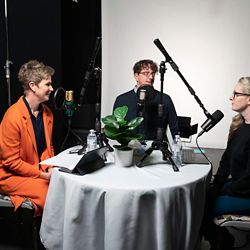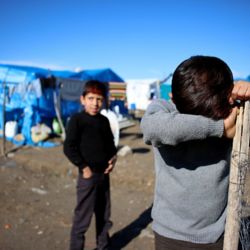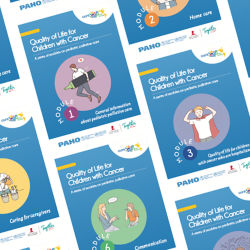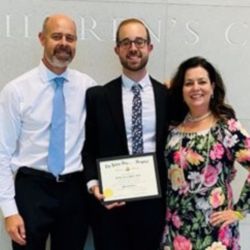Reflections on Knowledge from a Parent-Physician
Read this article in Russian.
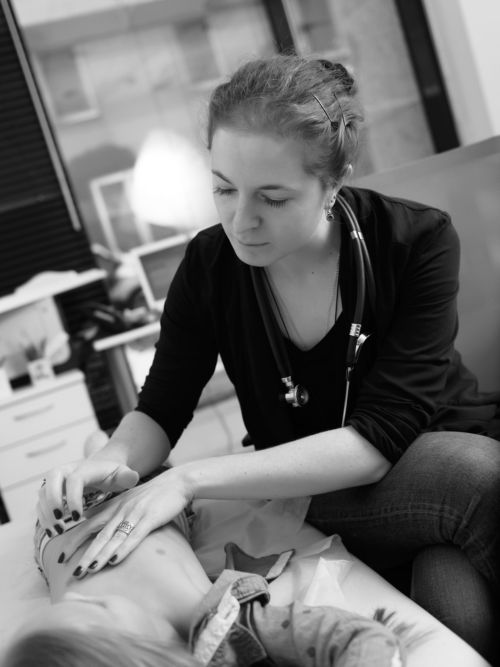
Anna Sonkin, MD, is a pediatrician who now works in the Euro Regional Program of St. Jude Global. Her daughter is in remission from a brain tumor.
I was sitting in a large auditorium on the St. Jude Children’s Research Hospital campus. A St. Jude employee, I was attending an annual event called the St. Jude Global Alliance Convening. The session started with a talk from a childhood cancer survivor who was diagnosed at age 19 and lived to tell his story.
I sat in the first row of the balcony, dressed professionally, sipping coffee, and surrounded by colleagues. And I was crying.
In Russia, 4 years earlier, my daughter had been diagnosed with a brain tumor. At age 15, she started having noise in her ear and dizziness. She asked me to take her to the doctor. As a pediatrician, I had seen many teens with similar complaints. I knew that it was almost always something benign. So, I was not in a hurry to get her checked.
I knew nothing.
Diagnosis and parental paralysis
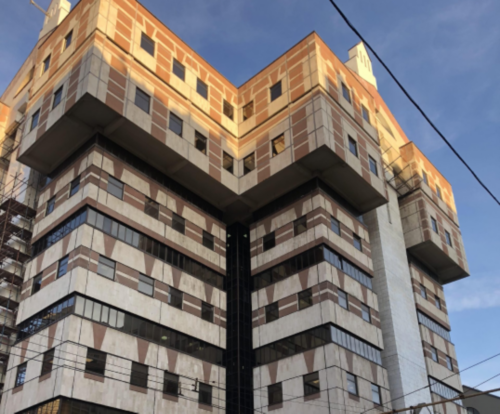
Sonkin’s daughter received treatment at the National Medical Research Center for Neurosurgery named after Academician N.N. Burdenko, in Moscow, Russia.
The neurologist examining my daughter did not like some of the signs on the neurological exam and suggested an MRI.
I agreed reluctantly. I knew my daughter could not have a brain tumor. Several years earlier, I had worked as a palliative care physician in a neuro-oncology center in Moscow. The odds of her having the same rare disease that I used to work with were extremely low.
But I knew nothing.
The tumor was there, and the journey began. Surgery, side effects, radiation therapy—all in the cold, merciless environment of the Russian health care system.
Over and over, I discovered things I had not known. I thought, as a palliative care professional, that I knew a lot about the disease, the journey, the needs of the parents, and the specific ways teens cope. On the day of my daughter’s surgery, the nurses were taking her to the operating room. She squeezed my hand, started crying, and repeatedly expressed the heartbreaking “goodbyes” and “I love you’s” of a person who thinks they will never see someone again.
Before that, I had known absolutely nothing about the suffocating paralysis of seeing your child in so much fear. It haunts me to this day.
The fears of a parent
There were also things that people around me did not know. The surgery went well, and despite some unpleasant complications, the doctors gave a good prognosis.
The tumor could not be removed entirely, but the radiation promised excellent results. Our friends and family started getting more relaxed and optimistic. The general feeling was that everything would soon be over. But not for me.
Several years earlier, as a young physician at the beginning of my career, I never saw a child who survived a brain tumor. But I cared for many children who were dying. I knew what that looked like. I knew the smells and the sounds of a child at the end of life. I knew the look of an empty hospital room full of toys and children’s clothes that needed to be packed and given away.
Perhaps this was the only instance where I knew too much.
Solace and healing through friendship
The best friends you will ever have are the ones who understand that they don’t know what you’re going through. The ones who ask and listen and are willing to learn things together with you so they can lead you out of the darkness.
The theme of the conference that day on the St. Jude campus was “Alliance Now: World of Knowledge.” As I squeezed through the rows on my way out of the auditorium, trying to hide my tears, I thought how strange it is that despite a whole world of knowledge, we still know nothing.
Until we do.


